
Netherlands
Partner in global health
A partnership for equal access to health services for all people
Rooted in the Netherlands' commitment to health, human rights and leadership in promoting universal access to health, including the full breadth of sexual and reproductive health services, WHO and the Netherlands have developed a longstanding strategic partnership addressing global health challenges and fostering better health and well-being around the world, and thus also in the Netherlands.
The shared priorities in WHO's Global Programme of Work and the Dutch Global Health Strategy 2023-2030 inform the partnership. The Dutch Strategy underscores that the public health situation in the Netherlands is intrinsically linked to global health developments and challenges. Its focuses on 3 key priorities:
- Strengthening the global health architecture and national health systems, incl.: improved access to primary healthcare and sexual and reproductive health and rights (SRHR), international coherence and multilateral cooperation;
- Improving international pandemic preparedness and minimizing cross-border health threats, incl.: global access to medicines and health products; strengthened international action on antimicrobial resistance (AMR) and zoonotic diseases policy;
- Addressing the impact of climate change on public health, and vice versa, incl.: making healthcare more sustainable and climate-resilient; international action on climate, water, sanitation and food.
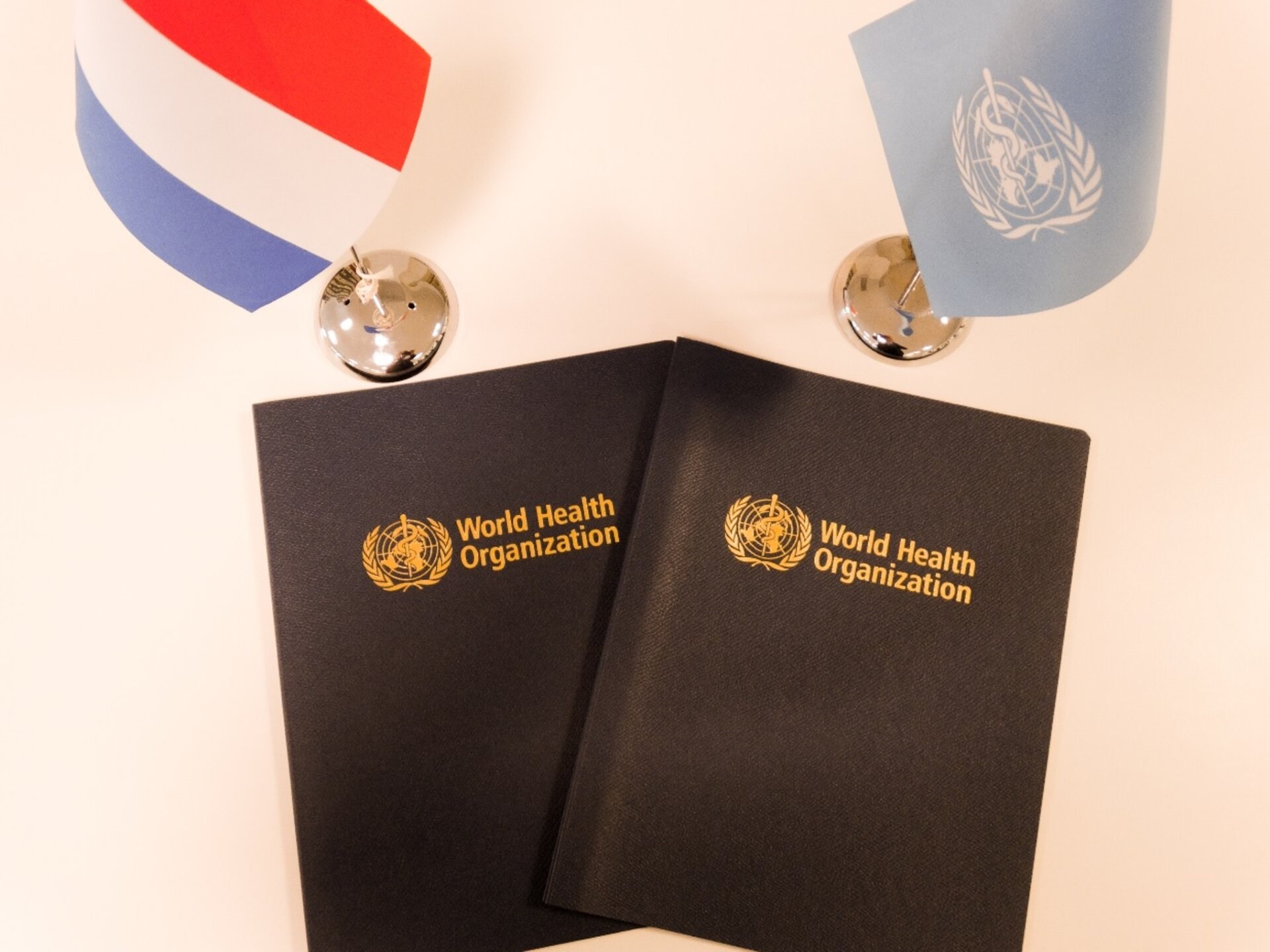
Netherlands: 5th largest flexible WHO contributor
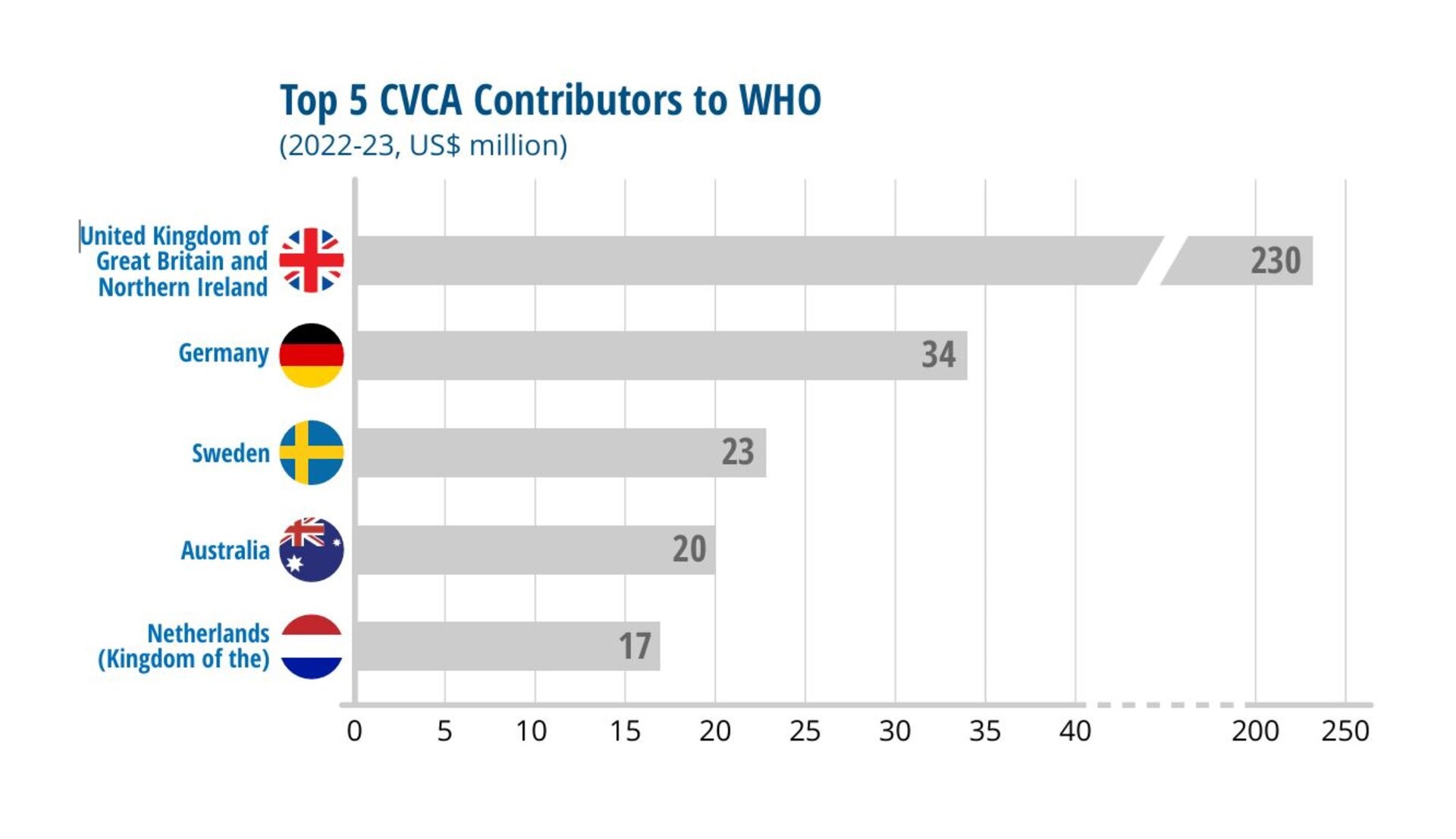
Note: The amounts are based on preliminary 2022 - 2023 data and might differ from the figures in the WHO Budget Portal, as they represent funds available net of programme support costs.
The Netherlands stood in 2022 - 2023 amongst the top five flexible WHO contributors with nearly US$ 19 million in core voluntary contributions. Overall, the Netherlands contributed more than US$ 106 million to WHO in 2022 - 2023, of which US$ 93 million, nearly 90%, was voluntary funding.
The Netherlands also supports WHO's technical expertise through secondments of staff and helps boost young people's careers in public health via WHO's Junior Professional Officer Programme.
This demonstrates the Netherlands' commitment through its Ministry of Foreign Affairs and Ministry of Health, Welfare and Sport to WHO's sustainable financing through predictable and flexible funds enabling WHO to quickly and with agility respond to key global health priorities and needs, allowing WHO to keep pace with the ever-changing demands of global health and to improve the health and well-being of all especially those in the most vulnerable situations.
Climate change and health
Acknowledging climate change as the paramount health challenge of the 21st century, WHO and the Netherlands strengthened their collaboration to foster the resilience and sustainability of health systems against climate change.
The Netherlands and WHO work together to elevate and accelerate the work of the Alliance for Transformative Action on Climate and Health (ATACH), a cornerstone initiative within WHO.
ATACH's mission is to build climate-resilient and sustainable health systems, leveraging the collective power of WHO Member States and other stakeholders to advance this agenda swiftly and at scale. The integration of climate change and health into national, regional, and global plans is a central tenet of ATACH's work, recognizing the interconnectedness of environmental and public health.
The Netherlands' support enables the ATACH Secretariat to cater to country-specific needs in advancing climate change and health goals, while concurrently mobilizing partners to catalyze an international policy shift. The collaborative efforts extend to monitoring and evaluating progress, supporting implementation, and cultivating a global community of practice dedicated to accelerating the delivery of impactful solutions.
The Netherlands and the Resolution on climate change and health
Climate is one of the three priorities of the Dutch Global Health Strategy. In this context, the Netherlands has initiated a new WHO Resolution on Climate Change and Health to renew the current one from 2008, recognizing the increasing urgency and the need for accelerated efforts.
Supported by the WHO Secretariat, the Netherlands has set up a cross-regional drafting group, consisting of NL, Peru, UK, Fiji, Kenya, and Barbados. NL, together with Peru as co-initiator of the process.
The goal of the initiative for a new WHA Resolution on Climate Change and Health is 1) to make climate an integral part of the work of WHO, and 2) to promote action worldwide in and by all Member States.
Key deliverables are:
- The development of a Global Plan of Action, building on the already existing WHO global strategy on health, environment and climate change; this global plan will be for the entire world, next to the already existing plan of action for SIDS
- Mainstreaming in WHO General Programme of Work: integrating climate and health as core and cross-cutting element in the WHO General Programme of Work (GPW)
- National commitments: strengthening national commitments for developing environmentally sustainable and climate resilient health systems
- Endorsement of ATACH: endorsement of the Alliance for Transformative Action on Climate and Health (ATACH) as a formal WHO-led mechanism and global platform
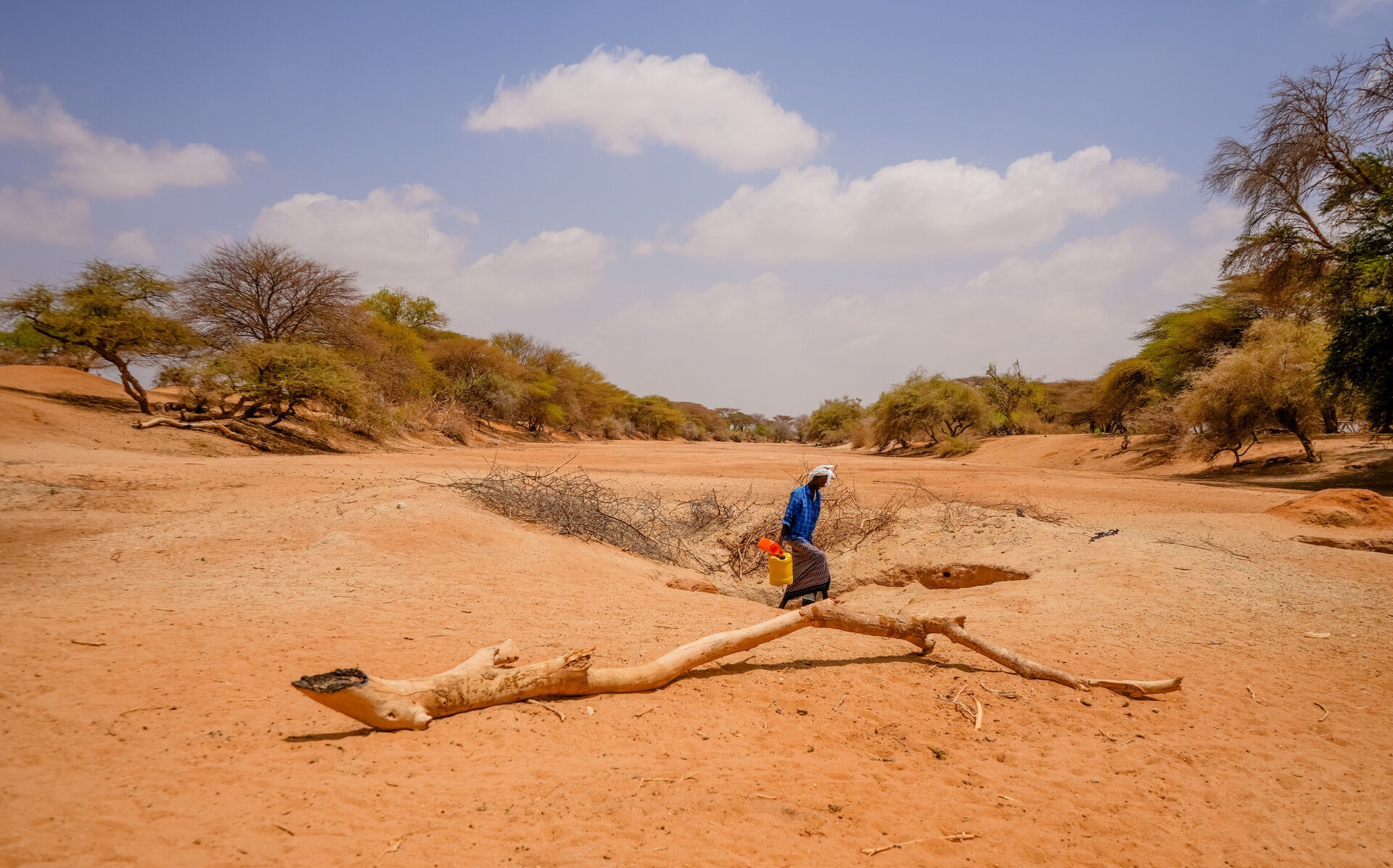
Mahad walks away from a well in Lehele which residents say has been dry for three years.
Tobacco regulation

Chronic obstructive pulmonary disease kills over 3 million people every year, smoking is the leading cause.
The Netherlands strongly supports global efforts to combat tobacco use and eliminate illicit trade in tobacco products to protect present and future generations from the devastating health, social, environmental, and economic consequences of tobacco consumption. As a Party to both the WHO Framework Convention on Tobacco Control (WHO FCTC) and the Protocol to Eliminate Illicit Trade in Tobacco Products, it contributes to shaping international strategies for tobacco control and supports the work of the Secretariat of the WHO FCTC by providing both financial contributions and secondment support.
By participating in the Protocol to Eliminate Illicit Trade in Tobacco Products, the Netherlands contributes to combating a major threat to public health—the illicit trade that undermines tobacco control measures.
WHO collaborating centres in the Netherlands
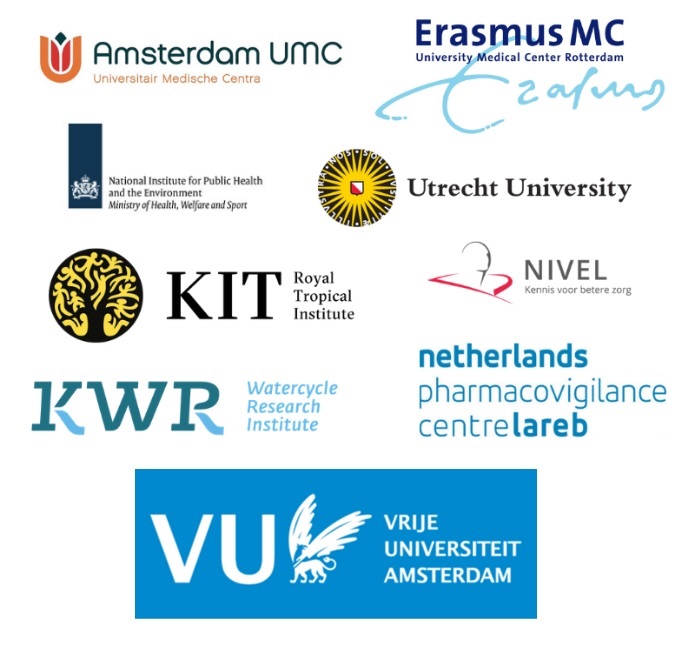
The Netherlands contributes scientific expertise to WHO through its WHO collaborating centres, which produce research on a wide range of topics including occupational health, tobacco regulation, water quality and infectious diseases. Several of these collaborating centres are hosted by the National Institute for Public Health and the Environment (RIVM).
For more than 40 years, the WHO Collaborating Centre for Risk Assessment of Pathogens in Food and Water at RIVM has provided WHO with scientific advice on risk assessments for food- and water-related pathogens and antimicrobial resistance in addition to assisting WHO’s normative work. The centre also supports WHO in strengthening country capacity in implementing national food- and water-borne surveillance systems through providing technical knowledge and skills.
The Academic Medical Centre at the University of Amsterdam hosts the WHO Collaborating Centre for Quality and Equity in Primary Health Care Systems, which provides WHO with methodological support to assess performance, including quality, in primary health care and to document evidence to inform policies on integrated health services delivery.
RIVM also hosts the Collaborating Centre for Infectious Disease Preparedness and IHR Monitoring & Evaluation. The Collaborating Centre supports WHO in the implementation and monitoring of the IHR at country level. This entails that the Collaborating Centre supports the establishment and strengthening of core capacities and functions, required under the IHR by providing technical advice on all-hazard preparedness and IHR Monitoring & Evaluation (M&E).
Thank you @ministerBHO Reinette Klever and the #Netherlands for your timely contribution to @WHO’s #mpox response.
— Tedros Adhanom Ghebreyesus (@DrTedros) September 10, 2024
We are grateful to @minbz for being a steadfast supporter of flexible funding to WHO’s work in health emergencies. https://t.co/HdEnMYqO3L
Amid increasingly complex and connected threats, from pandemics and climate change to conflicts, the #Netherlands remains an essential supporter of @WHO and global public health.
— Tedros Adhanom Ghebreyesus (@DrTedros) November 6, 2023
I was pleased to sign today a new partnership agreement with @MinisterVWS Kuipers in support of… pic.twitter.com/Grhhah0ag7




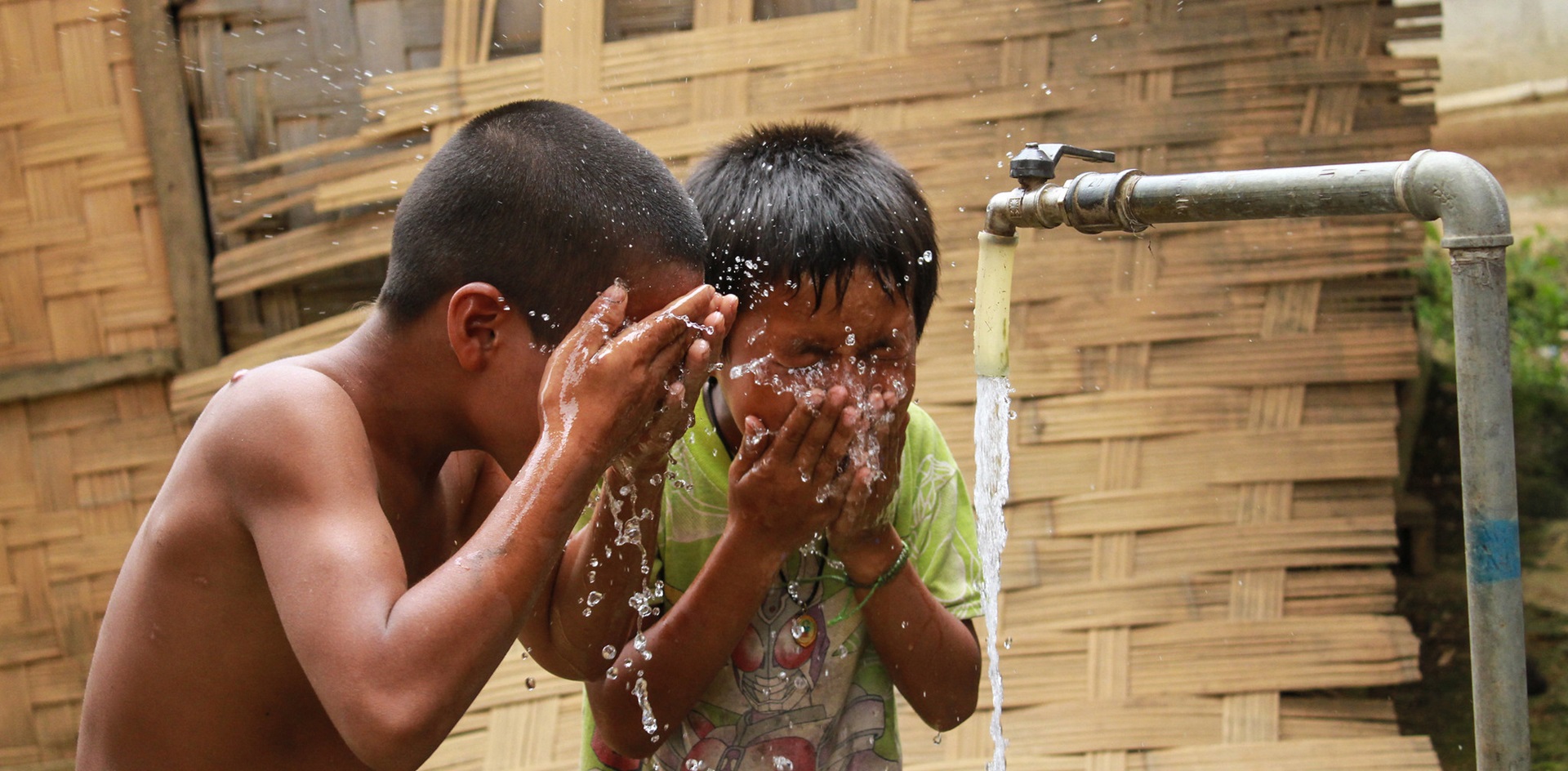


.tmb-1920v.jpg?Culture=en&sfvrsn=a1cb0706_3)